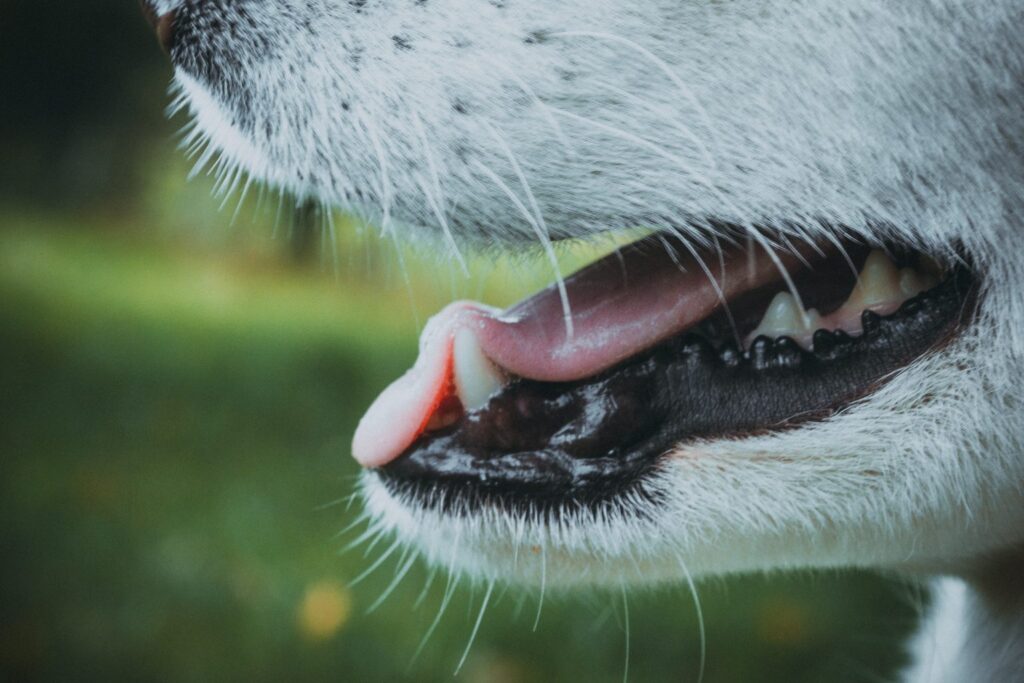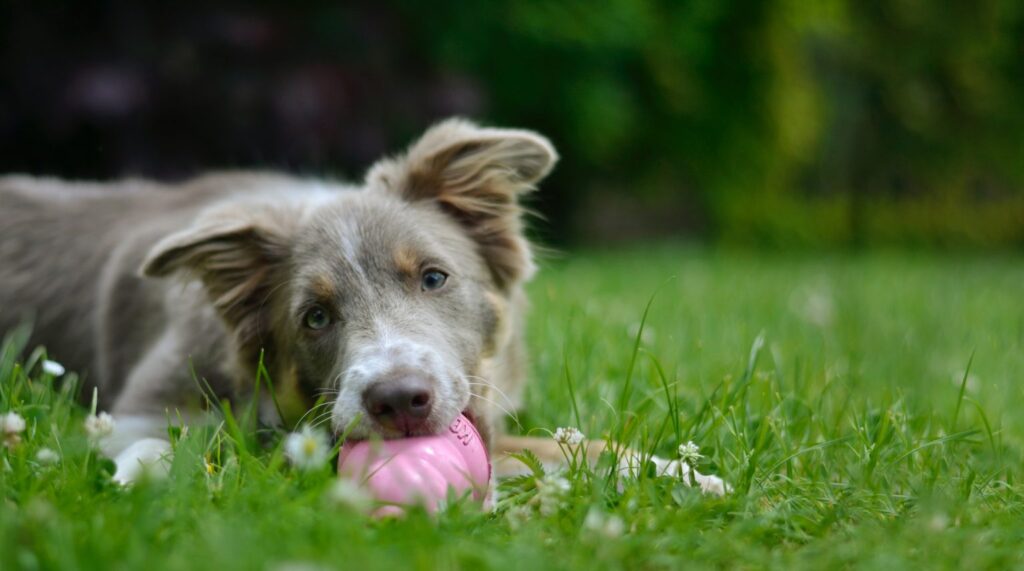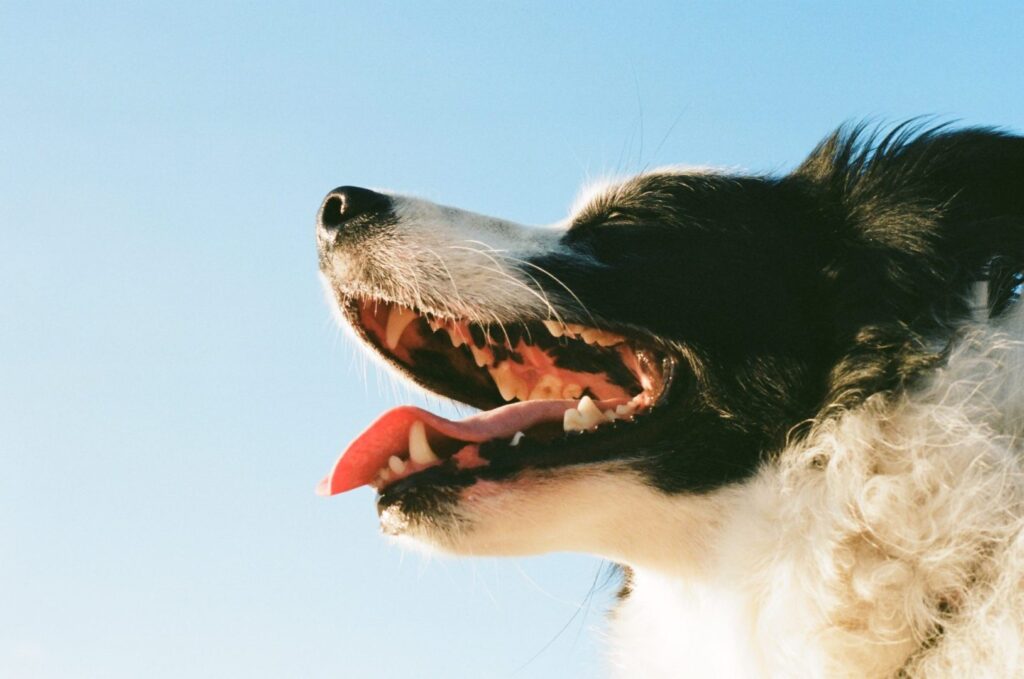Plaque Problems
The oral health of your dog goes beyond just having clean-looking teeth. Dental diseases can affect the entire body. Plaque, that sticky film of bacteria on the gums, teeth, and tongue, can cause serious issues.
Just like in humans, inflamed gums can worsen, and plaque can enter the bloodstream, potentially damaging organs. The bacteria and acids in plaque also attack the teeth and gums.
Over time, plaque hardens and turns into tartar. The more tartar your dog has, the greater the risk of health problems. By removing plaque early, you can prevent future issues and protect your dog’s oral health.

What to Watch Out For
It's crucial that you can recognize the signs of dental problems in your dog. Bad breath, often caused by plaque and the characteristic sulfur smell of bacteria, is a typical warning sign.
Gingivitis, indicated by swelling and bleeding, often points to tartar buildup. Excessive drooling is another clue you shouldn't ignore. If you notice these signs, it's wise to consult a veterinarian.
If your dog hesitates to eat, this could indicate pain in the mouth. A dog with mouth pain may be irritable or even depressed and may resist having their face touched. Observe such behavioral changes and consider oral problems as a cause. In such cases, a visit to the vet is particularly important.
Brushing Your Dog’s Teeth
Dental care is important for your dog too! Use a special dog toothbrush to improve your pet's oral hygiene. If you notice plaque on their teeth, try brushing it away. But be cautious: only use toothpaste specifically designed for dogs, as regular toothpaste containing fluoride can be harmful to them. The first time you brush your dog’s teeth, they might find it strange and resist or even snap.
In such cases, start with gentle brushing motions using your finger and gradually introduce the toothbrush. Reward them when they allow you to brush, to make the process easier.
It’s also advisable to try different diets to support your dog’s dental and gum health. Choose foods with the right size and texture to promote the cleaning process of the teeth. Chew treats and water additives can also be beneficial.
Chew treats are not just a delight for your dog; they also help minimize plaque buildup on the teeth, contributing to better oral health. Seaweed products, especially those added to drinking water, can be effective in keeping your dog's teeth healthy.

Common Dental Diseases
Nobody Likes Bad Breath!
Unfortunately, dental diseases in dogs can be more than just a minor issue. They often occur due to age, breed, and diet. Therefore, pay special attention to your dog's dental health, especially as they get older or if they belong to a breed prone to dental problems. Proper nutrition also plays a significant role in preventing these diseases.
Plaque & Tartar Buildup
Plaque is a mixture of saliva, food, and bacteria that accumulates on your dog's teeth. Over time, it hardens into a tough, brown substance known as tartar. Tartar not only damages the teeth but also causes painful and inflamed gums. The bacteria from tartar can enter the bloodstream, leading to issues with your dog’s kidneys, heart, and liver.
Gingivitis
Gingivitis is a really unpleasant and painful condition often caused by heavy plaque and tartar buildup around your dog’s teeth. This common dental disease can make the gums red, sensitive, and prone to bleeding. It can be very painful for your dog and likely requires a visit to the vet.
Tooth Root Abscess
A tooth root abscess is an infection near the tooth root that occurs when bacteria and debris get under your dog’s gums. Such abscesses are extremely uncomfortable for both humans and dogs. They often lead to swelling on one side of the face and cause significant discomfort.
Broken or Damaged Teeth
Your dog has very strong teeth that usually don’t break easily. However, if they are weakened by disease, they can wear down or even break. If your dog breaks or damages a tooth, take them to the vet immediately, as the damage can be serious.
Damaged teeth are often very painful for your dog and can lead to infections. Therefore, it's wise not to give your dog anything too hard to chew on to avoid further damage.





